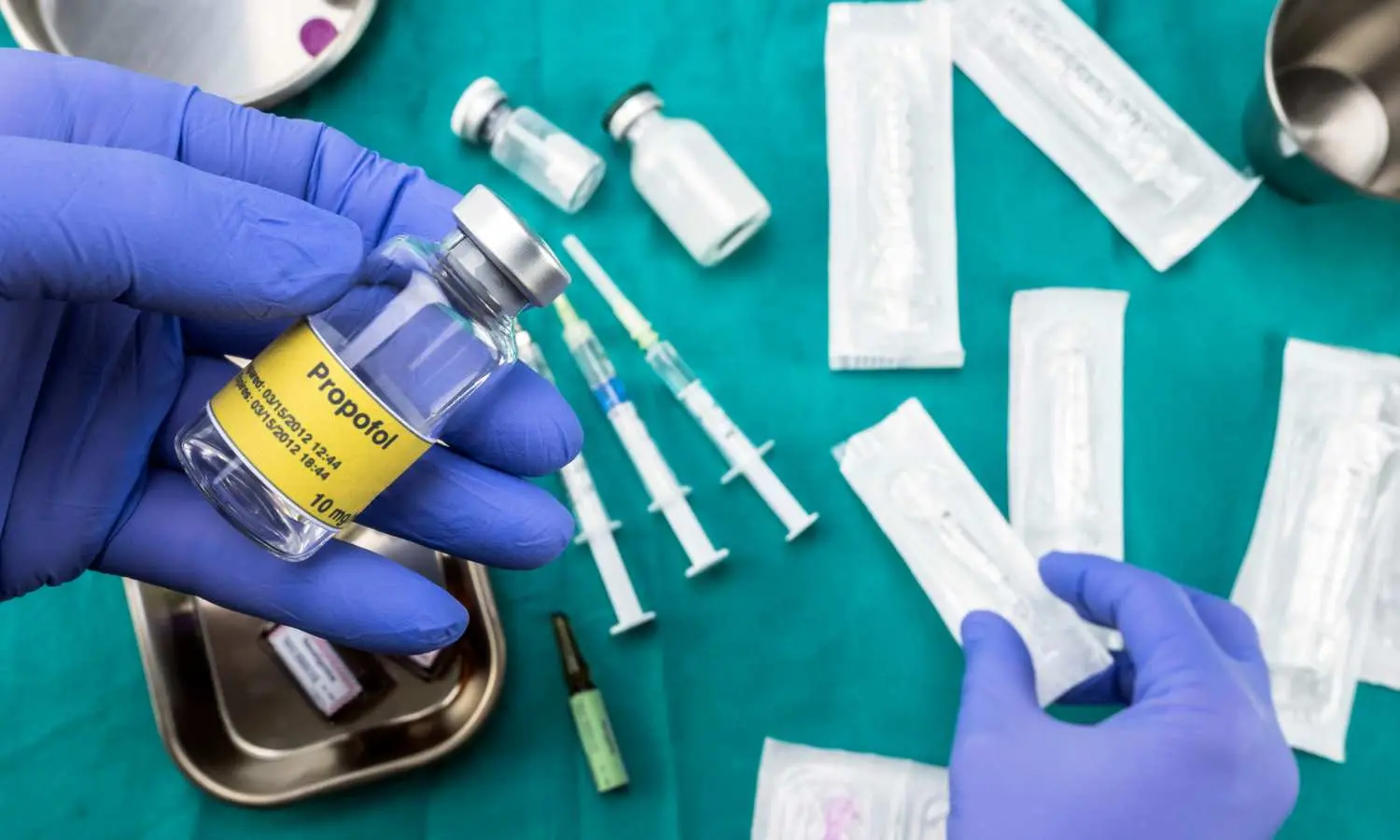- Home
- Medical news & Guidelines
- Anesthesiology
- Cardiology and CTVS
- Critical Care
- Dentistry
- Dermatology
- Diabetes and Endocrinology
- ENT
- Gastroenterology
- Medicine
- Nephrology
- Neurology
- Obstretics-Gynaecology
- Oncology
- Ophthalmology
- Orthopaedics
- Pediatrics-Neonatology
- Psychiatry
- Pulmonology
- Radiology
- Surgery
- Urology
- Laboratory Medicine
- Diet
- Nursing
- Paramedical
- Physiotherapy
- Health news
- Fact Check
- Bone Health Fact Check
- Brain Health Fact Check
- Cancer Related Fact Check
- Child Care Fact Check
- Dental and oral health fact check
- Diabetes and metabolic health fact check
- Diet and Nutrition Fact Check
- Eye and ENT Care Fact Check
- Fitness fact check
- Gut health fact check
- Heart health fact check
- Kidney health fact check
- Medical education fact check
- Men's health fact check
- Respiratory fact check
- Skin and hair care fact check
- Vaccine and Immunization fact check
- Women's health fact check
- AYUSH
- State News
- Andaman and Nicobar Islands
- Andhra Pradesh
- Arunachal Pradesh
- Assam
- Bihar
- Chandigarh
- Chattisgarh
- Dadra and Nagar Haveli
- Daman and Diu
- Delhi
- Goa
- Gujarat
- Haryana
- Himachal Pradesh
- Jammu & Kashmir
- Jharkhand
- Karnataka
- Kerala
- Ladakh
- Lakshadweep
- Madhya Pradesh
- Maharashtra
- Manipur
- Meghalaya
- Mizoram
- Nagaland
- Odisha
- Puducherry
- Punjab
- Rajasthan
- Sikkim
- Tamil Nadu
- Telangana
- Tripura
- Uttar Pradesh
- Uttrakhand
- West Bengal
- Medical Education
- Industry
Propofol in the Limelight: Study Unveils Adverse Reactions in Outpatient Endoscopic Sedation

In a recent cross-sectional study conducted in a private hospital in Peru, the prevalence and risk factors for adverse drug reactions (ADRs) associated with nurse-administered propofol sedation during outpatient endoscopic procedures were assessed. With a sample of 693 patients aged 18 to 69 years, the study focused on individuals with ASA physical status classifications I to III and monitored for signs and symptoms related to propofol sedation between January 2021 and July 2022.
Findings on Adverse Drug Reactions
The findings indicated that 30.9% of the participants experienced at least one ADR, predominantly mild or moderate in severity, with no serious adverse events (SAEs) reported. This outcome aligns with established safety profiles of propofol, suggesting acceptable safety when administered by trained nursing staff. The recovery times for patients who experienced ADRs were notably longer, averaging 22 minutes compared to 14 minutes for those without ADRs (p < 0.0001).
Risk Factors Associated with ADRs
Significant risk factors associated with ADRs were identified through multivariate analyses. An ASA classification of III was linked to a higher prevalence of ADRs (PR adjusted: 1.73, 95% CI: 1.01-2.99). Longer procedure durations also correlated with increased risk (PR adjusted: 2.05, 95% CI: 1.53-2.73). These results underscore the importance of considering patient health status and procedure complexity in patient management. In contrast, obesity did not emerge as a significant risk factor, suggesting that variations in the metabolic health of obese patients could influence outcomes.
Contributions to Current Knowledge
The study makes a noteworthy contribution by documenting ADR frequencies and severities, with a comprehensive review employed to assess causality using the Naranjo algorithm. The findings challenge prior assertions regarding significant rates of serious complications during propofol sedation, particularly in a low-income context, while simultaneously advocating for the safety of nurse-administered sedation in outpatient endoscopy.
Study Limitations and Future Directions
Limitations included the exclusivity of the procedures evaluated and the predominance of low-risk patients. The study suggests that further rigorous investigations across diverse populations and procedural complexities are warranted to refine understanding and practice guidelines around propofol sedation in similar settings. Importantly, the work highlights the collaborative effort necessary among healthcare professionals in enhancing patient safety protocols, ultimately contributing to better healthcare practices in developing countries.
Key Points
-Prevalence of Adverse Drug Reactions (ADRs)-: Among 693 patients monitored during outpatient endoscopic procedures using nurse-administered propofol sedation, 30.9% experienced ADRs, primarily of mild to moderate severity. No serious adverse events (SAEs) were reported, indicating a favorable safety profile consistent with existing literature.
- -Impact on Recovery Time-: Patients who experienced ADRs exhibited significantly longer recovery times, averaging 22 minutes compared to 14 minutes for patients without ADRs, with a p-value of < 0.0001, highlighting the clinical implications of ADR occurrence on procedural efficiency.
- -Identified Risk Factors for ADRs-: The study revealed that an ASA classification of III was associated with a higher prevalence of ADRs (PR adjusted: 1.73, 95% CI: 1.01-2.99) and longer durations of procedures increased risk (PR adjusted: 2.05, 95% CI: 1.53-2.73), suggesting the need for careful risk assessment based on patient health status and procedural demands.
- -Metabolic Health Implications-: Contrary to some expectations, obesity did not emerge as a significant risk factor for ADRs, prompting further exploration into how metabolic health variations among obese patients may affect sedation outcomes.
- -Use of Naranjo Algorithm-: A comprehensive assessment of causality for ADRs was performed using the Naranjo algorithm, augmenting the reliability of findings and contributing valuable data regarding the frequency and severity of ADRs associated with propofol sedation.
- -Call for Further Research and Collaboration-: The study acknowledges limitations, primarily the focus on low-risk patient populations and specific procedures. It advocates for expanded research across varied demographics and procedural complexities, emphasizing the necessity of collaborative efforts in optimizing patient safety protocols, particularly in low-resource settings.
Reference –
Renzo Inca Villanueva et al. (2025). Risk Factors For Adverse Reactions To Nurse-Administered Propofol During Outpatient Endoscopy: A Cross-Sectional Study. *BMC Anesthesiology*, 25. https://doi.org/10.1186/s12871-025-03012-2.
MBBS, MD (Anaesthesiology), FNB (Cardiac Anaesthesiology)
Dr Monish Raut is a practicing Cardiac Anesthesiologist. He completed his MBBS at Government Medical College, Nagpur, and pursued his MD in Anesthesiology at BJ Medical College, Pune. Further specializing in Cardiac Anesthesiology, Dr Raut earned his FNB in Cardiac Anesthesiology from Sir Ganga Ram Hospital, Delhi.


